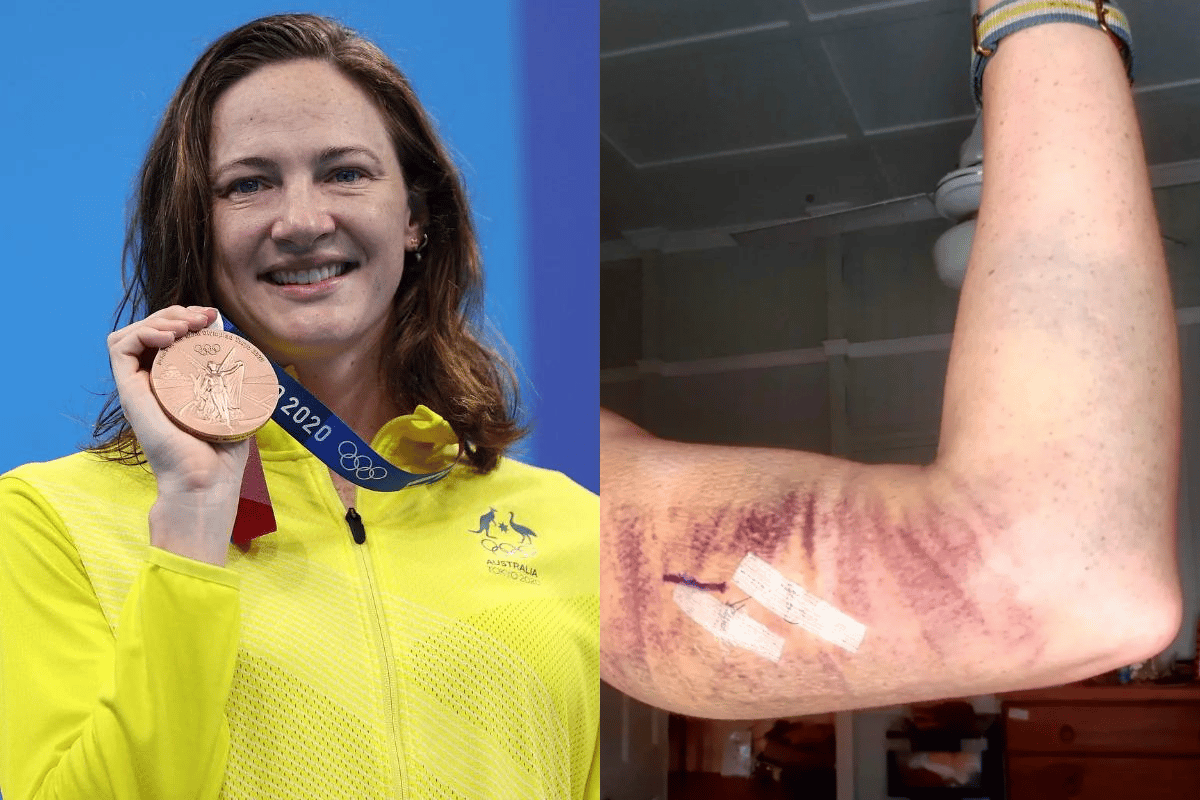
Our menstrual cycles and periods in general can be very finicky at the best of times. But imagine having to deal with your period while being a professional athlete. This is the reality so many face, and one such person who knows the challenges all too well is Olympic swimmer Cate Campbell.
Because in 2018, she suffered a near career-ending injury that was directly related to trying to manage her menstrual cycle. She spoke about this experience on Here If You Need, Mamamia's new podcast celebrating womens' sport.
"It actually had a real impact on me. I wanted to look at how I could manage my periods, because I didn't want to race while I was on my period," Campbell explained to pod co-host and sports journalist Hayley Willis.
"I tried to explore a few contraceptive options and at the time there wasn't really a good sports referral network for females to go down, so I just asked a bunch of swimmers what they were doing and decided to try the contraceptive implant. It's a bar that sits in your inner arm."
In 2018, Campbell had the procedure. But for her, it unfortunately went "horribly wrong".
Watch Bodyform's "Blood Normal" campaign. Post continues below.
"That actually gave me permanent nerve damage down the right side of my arm. On the nerve I have strange sensations in my hand and palm because the bar was not inserted correctly. When we then tried to move the bar, it wasn't doing what it was supposed to do and the GP dug around and hit my nerve so much that I now have a permanent strange feeling."
